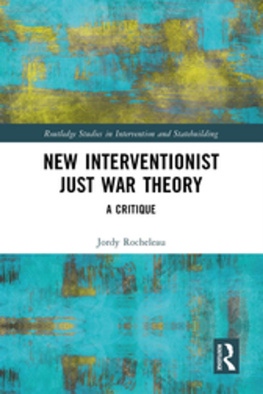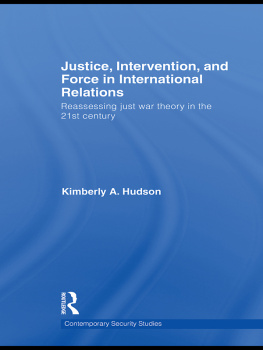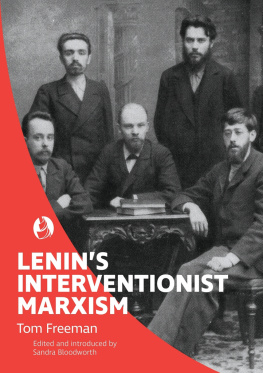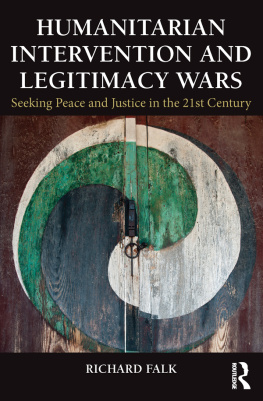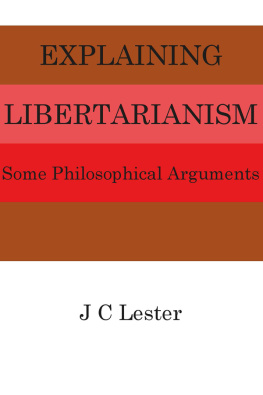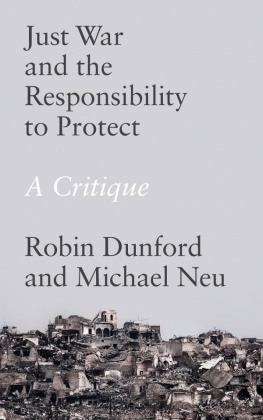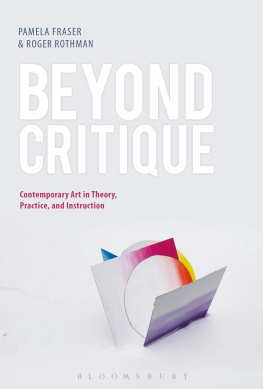New Interventionist Just War Theory
This book offers a systematic critique of recent interventionist just war theories, which have made the recourse to force easier to justify.
The work argues that these theories, including neo-traditionalist prerogatives to national leaders and a cosmopolitan human rights paradigm, offer criteria for war that are insufficient in principle and dangerous in practice. Drawing on a plurality of moral considerations, the book recommends a modified legalist national defense paradigm, which includes an atrocity threshold for humanitarian intervention and a legitimate authorization requirement. The plausibility of this restrictive framework is applied to case studies, including the long wars in Iraq and Afghanistan, ongoing targeted killing, and possible interventions in Syria and elsewhere. Various arguments which seek to loosen the criteria for war are also systematically analyzed and criticized.
This book will be of much interest to students of just war theory, military history, ethics, political philosophy, and international relations.
Jordy Rocheleau is Professor of Philosophy at Austin Peay State University, USA. He is co-author of Rights and Wrongs in the College Classroom (2007).
Routledge Studies in Intervention and Statebuilding
The series publishes monographs and edited collections analysing a wide range of policy interventions associated with statebuilding. It asks broader questions about the dynamics, purposes and goals of this interventionist framework and assesses the impact of externally-guided policy-making.
Series Editors: Aidan Hehir, University of Westminster, UK, Pol Bargues, CIDOB (Barcelona Centre for International Affairs), Spain, and Vjosa Musliu, Vrije Universiteit Brussel (VUB), Belgium
Deferring Peace in International Statebuilding
Difference, Critique and Resilience
Pol Barugus-Pedreny
International Peacebuilding and Local Involvement
A Liberal Renaissance?
Dahlia Simangan
Europeanization and Statebuilding as Everyday Practices
Performing Europe in the Western Balkans
Vjosa Musliu
Kosovo and Transitional Justice
The Pursuit of Justice after Large Scale Conflict
Edited by Aidan Hehir and Furtuna Sheremeti
Statebuilding Missions and Media Development
A Context-Sensitive Approach
Kerstin Tomiak
New Interventionist Just War Theory
A Critique
Jordy Rocheleau
For more information about this series, please visit: https://www.routledge.com/Routledge-Studies-in-Intervention-and-Statebuilding/book-series/RSIS
New Interventionist Just War Theory A Critique
Jordy Rocheleau

First published 2022
by Routledge
2 Park Square, Milton Park, Abingdon, Oxon OX14 4RN
and by Routledge
605 Third Avenue, New York, NY 10158
Routledge is an imprint of the Taylor & Francis Group, an informa business
2022 Jordy Rocheleau
The right of Jordy Rocheleau to be identified as author of this work has been asserted by him in accordance with sections 77 and 78 of the Copyright, Designs and Patents Act 1988.
All rights reserved. No part of this book may be reprinted or reproduced or utilised in any form or by any electronic, mechanical, or other means, now known or hereafter invented, including photocopying and recording, or in any information storage or retrieval system, without permission in writing from the publishers.
Trademark notice: Product or corporate names may be trademarks or registered trademarks, and are used only for identification and explanation without intent to infringe.
British Library Cataloguing-in-Publication Data
A catalogue record for this book is available from the British Library
Library of Congress Cataloging-in-Publication Data
Names: Rocheleau, Jordy, author.
Title: New interventionist just war theory : a critique / Jordy Rocheleau.
Description: Abingdon, Oxon ; New York : Routledge, [2022] |
Series: Routledge studies in intervention and statebuilding | Includes bibliographical references and index.
Identifiers: LCCN 2021027411 (print) | LCCN 2021027412 (ebook) | ISBN 9780367615284 (hardback) | ISBN 9780367615680 (paperback) | ISBN 9781003105381 (ebook)
Subjects: LCSH: Just war doctrine. | Intervention (International law)
Classification: LCC U22 .R667 2022 (print) | LCC U22 (ebook) | DDC172/.42--dc23
LC record available at https://lccn.loc.gov/2021027411
LC ebook record available at https://lccn.loc.gov/2021027412
ISBN: 978-0-367-61528-4 (hbk)
ISBN: 978-0-367-61568-0 (pbk)
ISBN: 978-1-003-10538-1 (ebk)
DOI: 10.4324/9781003105381
Typeset in Times New Roman
by MPS Limited, Dehradun
Contents
- Introduction
- PART I
Ethical constraints on recourse to war: jus ad bellum vs realism and neo-traditionalism - Just war theory and the ethical restraint of war
- Presumptions, principles, and prerogatives in war: against hawkish neo-traditionalism
- Why punishment is not a just cause for war
- PART II
Defense of a legalist just cause threshold - Against the new cosmopolitan interventionism: why human rights protection is not sufficient cause for war
- What is it good for? Consequences and the limits of war
- Why two wrongs cannot make a right use of force: a critique of compound just causes
- PART III
Just war procedures and application - Jus ad(continuandum) bellum: reevaluating the justice of interventions over time
- The nature and necessity of legitimate authorization
- Conclusion: applying non-interventionist jus ad bellum
Acknowledgements
I am indebted to many for their assistance in my completing this work. Austin Peay State University awarded me a Faculty Research Fellowship (aka Sabbatical) and Summer Fellowship, giving me time to plan the project. My colleagues in the Department of History and Philosophy have engaged in instructive conversations about military history and been supportive friends. Thank you in particular to Greg Zieren, Greg Hammond, Cameron Sutt, Dzavid Dzanic, and Bert Randall. Dewey Browder helped redirect my research to just war theory in 2001 when he invited me to a just war course in Austin Peays new Military History Program. Thank you also to the many History and Philosophy students who engaged in thoughtful and challenging discussions in that course over the years.
Several friends have read chapters of this book and contributed valuable comments, including John Lango, Richard Peterson, David Chan, as well as three anonymous reviewers at Routledge. My understanding of issues in contemporary just war theory was advanced by a 2004 National Endowment for the Humanities Institute on War and Morality in the 21st Century in Annapolis. Discussion with colleagues at that seminar, including Bob Hoag, Harry van der Linden, Ed Santurri, Steven Lee, Michael Brough, Eric Patterson, Ken Rodman, John Lango, Gary Simpson, Mark Woods, and leader George Lucas was invaluable. My introduction to just war theory came as a graduate assistant in Steve Esquiths stimulating interdisciplinary course at Michigan State University; I am continuingly appreciative for this expansion of my applied ethics horizons.

